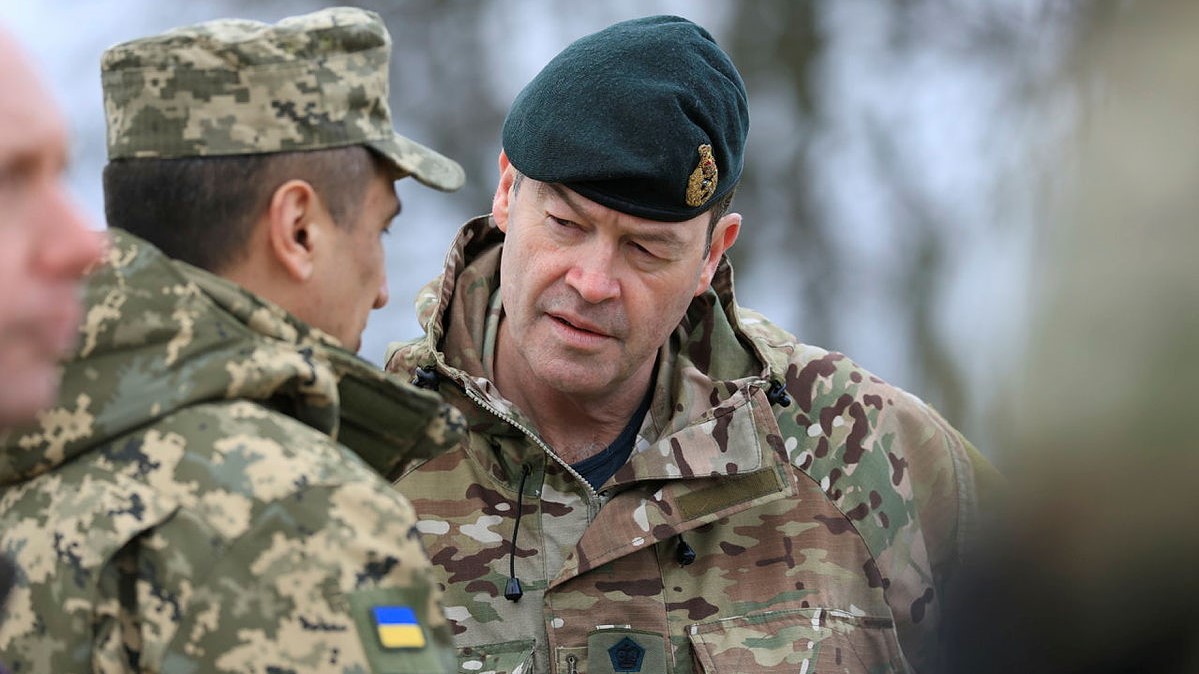'Nonsense' to claim head of Army has been forced out, Chief of Defence Staff says
Rumours that the head of the British Army is being forced out are "nonsense", the Armed Forces' most senior officer has said.
General Sir Patrick Sanders is expected to step down as Chief of the General Staff (CGS) next year, despite only taking up the post at the top of the Army in 2022, prompting speculation that he had been forced to resign.
Last week, the Telegraph reported that General Sanders had been forced out for publicly calling for more troops and increased military spending, while the Daily Mail claimed he had fallen out with the Chief of the Defence Staff, Admiral Sir Tony Radakin, over suggestions he could be replaced by a Royal Marines officer.
'Nonsense' claims
Questioned by the House of Commons Defence Committee, Adm Radakin denied claims that Gen Sanders had been forced out, saying he knew he would serve two years when he started.
Adm Sir Tony said: "What I can assure you is those press reports that he has been forced out, or that it's somehow in response to something he has done, are all nonsense.
"Patrick and I haven't fallen out either. We were surprised by the press reports and WhatsApped each other on Friday.
"There's also other nonsense. The next CGS will come from the Army, there was never any intention that a Royal Marine would somehow be the next CGS."

Adm Radakin also denied that Gen Sanders' departure was anything to do with recent comments about the size of the Army, saying this was "a myth".
He added: "He was told his appointment was for two years, therefore it follows that something that he said two months, six months ago, has not impacted on when he was leaving the job."
The CGS usually serves for a three-year term, but Gen Sanders received a two-year appointment as he had already served three years as head of UK Strategic Command.
Adm Radakin told MPs he had not been asked his opinion on whether Gen Sanders' term should be extended, saying the decision had been made by Defence Secretary Ben Wallace as part of an attempt to "manage talent" in the Armed Forces.
Asked why the Defence Secretary had become more involved in senior military appointments, Adm Radakin acknowledged there had been a change but said it was not "a huge constitutional change" that had politicised appointments but instead made the process "more orthodox".
He said: "The executive authority has always been in the secretary of state."

Last month, Mr Wallace said he was "very confident" in whoever replaces the head of the British Army and hopes the next Chief of the General Staff will continue the modernisation of UK land forces.
The Defence Secretary, a former Army officer himself, said: "Ultimately, I am confident in the quality of the generals we have that I will be interviewing for the post, will be able to continue the same effect, as required."
Mr Wallace also responded to claims that General Sir Patrick was being pushed out of the position early due to his outspoken comments on Army cuts, by saying: "I read the report, it is completely spurious."
He added: "When I appointed him the condition was he would be doing a two-year post," and "that is the deal we made."
Gen Sir Patrick took up the role of Chief of the General Staff at a critical time for the Army and has spoken out against cuts to the numbers of serving personnel and been critical of the "decades of disinvestment" in technology and kit.
It is understood the recruitment process to replace him will take around 18 months.









